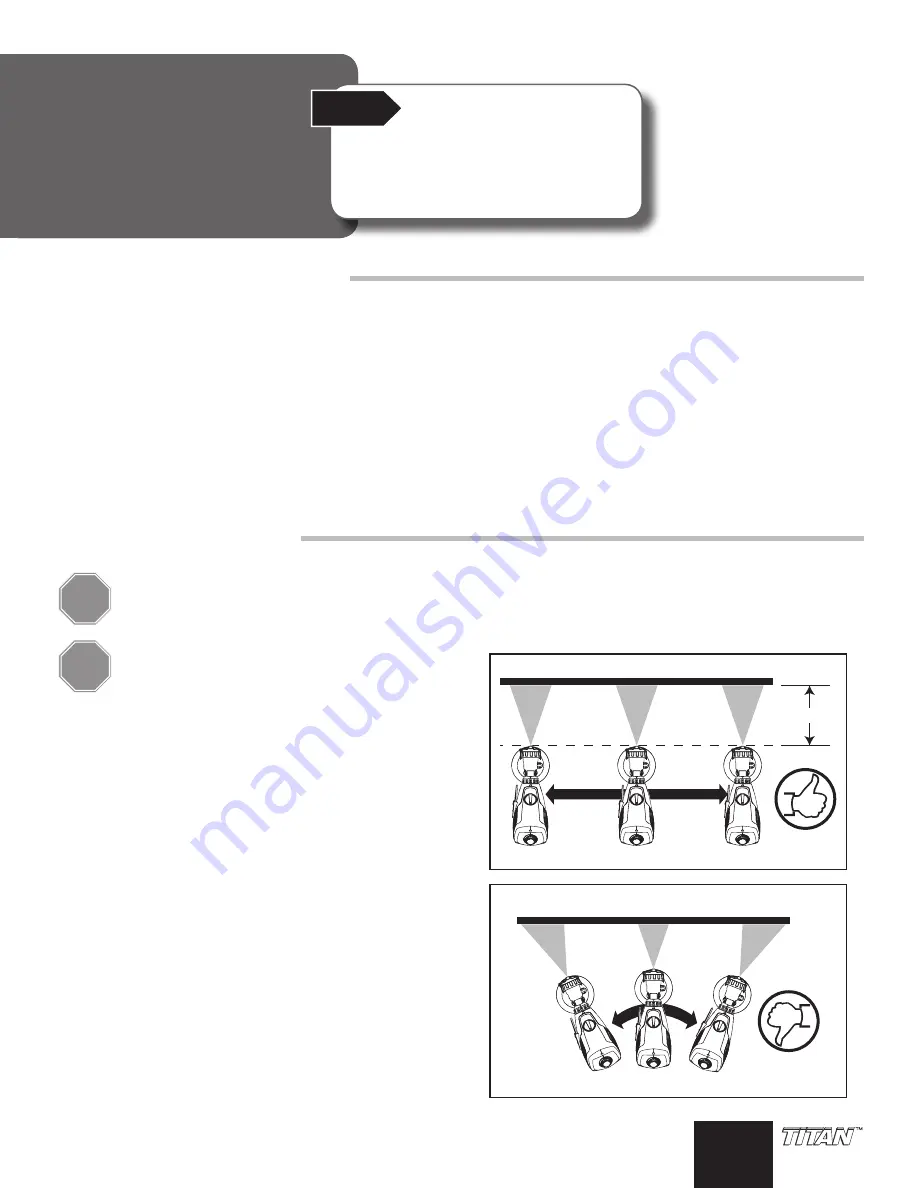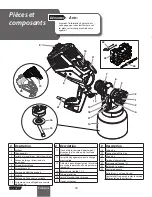
English
9
Safety
Start
Spraying
Start
The room you are spraying must be properly
masked in order to prevent overspray from
coating woodwork, floors or furnishings. Make
sure you have properly masked the room per
the instructions on page 6.
Notice:
Before You Begin Spraying
Practice
It is advisable to practice on a piece of scrap wood or cardboard before beginning
on your intended workpiece. A spray poster is also available in the carry case that
can be referenced for additional guidance. Refer to the settings on the FLEXSPRAY
Quick Start Guide, previous page as reference for a starting point.
Surface Preparation
All objects to be sprayed should be thoroughly cleaned before spraying material on
them. Areas not to be sprayed may, in certain cases, need to be masked or covered.
Spray Area Preparation
The spray area must be clean and free of dust in order to avoid blowing dust onto
your freshly sprayed surface.
How to Spray Properly
6 -12 inches
Even coat throughout
Keep stroke smooth and at an even speed
1 12
2
1 12
2
1 12
2
1
12
2
Do not flex wrist while spraying.
Light coat
Heavy coat
Light coat
1 12
2
1
12
2
STOP
It is important to keep your arm moving whenever the
gun is being triggered. If you pause or linger in one
spot too long, too much material will be sprayed to the
surface.
STOP
partially pulling the trigger will start the turbine, but
no material will spray until the trigger is pulled fully.
It is recommended that the trigger first be pulled
partially in order to start the turbine before a spray
pass is made.
• Position the spray gun perpendicular to and six (6) or more
inches from the spray surface, depending upon the spray pattern
size desired.
note: If spraying trim or some other surface that requires a very
narrow spray pattern, you may need to get closer than 6 inches from
the spray surface.
• Spray parallel to the surface with smooth passes at a consistent
speed as illustrated, right. Doing this will help avoid irregularities
in the finish (i. e. runs and sags).
• Always apply a thin coat of material on the first pass and allow to
dry before applying a second, slightly heavier coat.
• When spraying larger surfaces, overlap each spray pass by at
least 50% This will ensure full coverage.
• When spraying, always trigger the spray gun after spray pass
has begun and release trigger before stopping the pass. Always
keep the gun pointed squarely at the spray surface.
note: Between passes, the trigger should be released only far enough
for material to stop spraying, but not enough to cause the turbine to
shut down.
ImpoRTanT: when using quick-drying or two-component
coating materials, make sure to clean the sprayer with a suitable
cleaning agent before the material dries or cures inside the spray
gun. Check the manufacturer’s technical data sheet for drying
times.
Summary of Contents for 524093
Page 43: ...43 ...










































